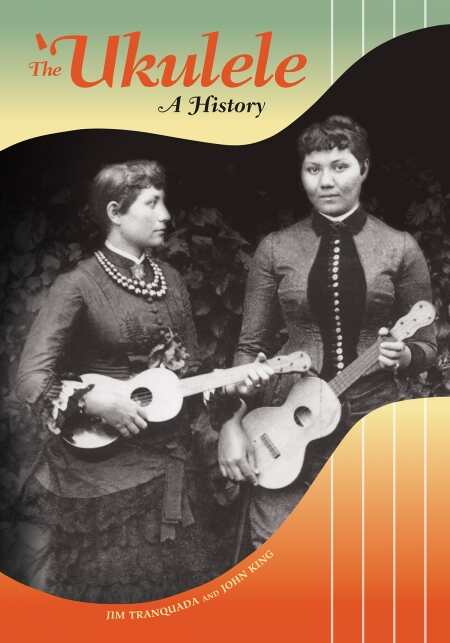The 'Ukulele
A History
Thanks to its small size and distinctive sound, the ‘ukulele has been lampooned in everything from literature and film to comic strips. But Jim Tranquada and John King hope to change the instrument’s image by exploring its legacy in their new book, The ’Ukulele: A History.
As Tranquada and King reveal, an understanding of the ‘ukulele’s history is vital if one is to appreciate why it is so maligned. The disrespect stems, in large part, from the ‘ukulele’s initial marketing campaign, which trumpeted it as “the instrument anyone could play, a strategy that simultaneously increased sales and undercut its standing as a legitimate musical instrument.” The ‘ukulele legitimacy was further damaged when it was sold to the American public as a Hawaiian instrument, which it wasn’t. Add to that the fact that both its composition and sound seem to defy description (“Just as they often had difficulty describing a ’ukulele, visitors [to Hawaii] struggled to describe the music it made”) and the ’ukulele almost seems doomed from the get-go.
A lively, readable text, The ’Ukulele: A History is a reassessment of the instrument and an in-depth study that truly does, as the authors insist in their introduction, have “the temerity to take the ’ukulele seriously and examine some of its hidden meanings.” To that end, the book has an academic edge that will likely hold the most appeal for musical scholars and hardcore ’ukulele enthusiasts, rather than the casual reader. The photographs scattered throughout—including images of performers, early instruction manuals, and newspaper articles—provide a good visual complement to the main text.
In The ’Ukulele: A History, Tranquada and King build an impressive case for why the ’ukulele should be taken seriously. They trace its Portuguese origins to its arrival in Hawaii during “a time of great change, as a new mix of Western melody and instrumentation combined with Hawaiian poetry, rhythms, and a unique cultural sensibility to create a new kind of music.”
The end result is a fascinating musical and social history that not only supports Tranquada and King’s argument for a rehabilitation of the instrument’s image, but also sets the stage for a full-scale ’ukulele revival. For, upon finishing The ’Ukulele: A History, one is practically compelled to log in to iTunes and download some ‘ukulele music by Israel Kamakawiwo’ole.
Reviewed by
Oline Eaton
Disclosure: This article is not an endorsement, but a review. The publisher of this book provided free copies of the book to have their book reviewed by a professional reviewer. No fee was paid by the publisher for this review. Foreword Reviews only recommends books that we love. Foreword Magazine, Inc. is disclosing this in accordance with the Federal Trade Commission’s 16 CFR, Part 255.

